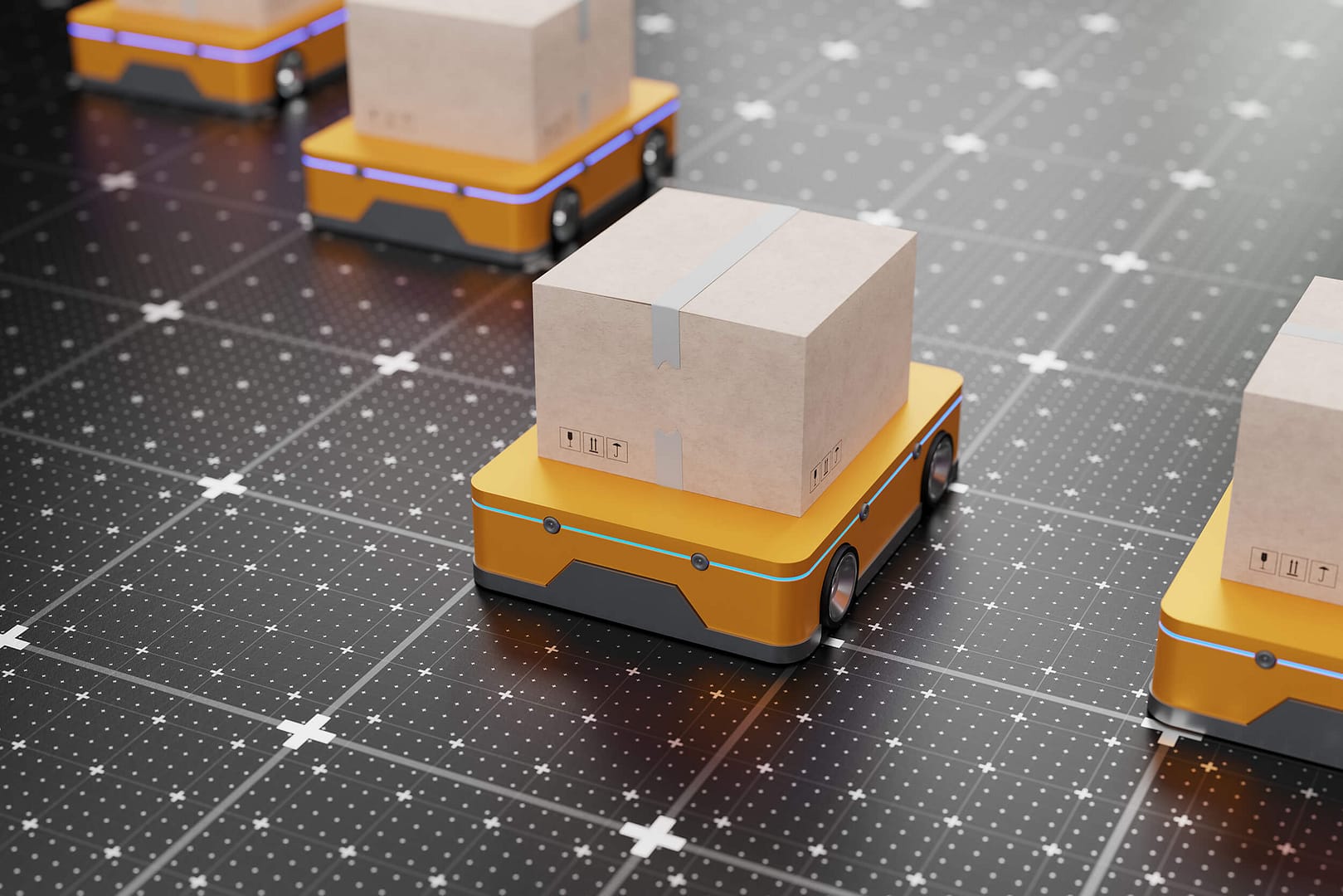Optimizing Workforce Resources with AI – Transcript
Vlad Petreski:
Changing a service from one provider to another is very different than changing a product. And it becomes a lot more disruptive to the business. And so what I have seen is that they are starting to push the concept of we will deliver you these AI as a service or embed AI in our solution, so that if you do decide in five years to switch providers, it becomes that much more challenging.
Announcer:
Welcome to The Hackett Group’s “Business Excelleration® Podcast.” Week after week, you’ll hear from top experts on how to achieve Digital World Class® performance.
Kyle McNabb:
Hi, everyone. I’m Kyle McNabb, The Hackett Group’s head of Research and IT Advisory. And I’m joined today by two of our Technology Transformation practice leaders – Michael Fuller, who’s the overall Technology Transformation practice leader, and Vlad Petreski, who’s our director of Technology Transformation and one of our lead experts in resourcing, outsourcing, and vendor management services.
Today, we’re here to talk about some of the impact we’re seeing how organizations are embracing and utilizing generative AI to reimagine what they do, and how they do it. Gentlemen, thank you both for joining me.
First question I have: With the introduction of generative AI … and it’s been a good 18 months or so that we’re seeing how organizations are beginning to embrace and use generative AI – be them a managed service provider in their services and even inside IT organizations for how they’re augmenting their workforce – what are some of the trends you’re seeing in particular within managed services providers and their IT outsourcing offerings?
Vlad Petreski:
So Kyle, I would like to categorize my answer into different areas. The first is generative AI has significantly accelerated some of the incremental improvements that managed services providers in particular are delivering to their customers. So when I say incremental improvements, I mean things like improve the ability to maximize solution, to improve personalization, to deliver fast on real-time results, and even deliver some things like on-demand from a modular service. The proliferation of things like generative AI as a service and self-service options are really becoming a lot more prevalent nowadays.
And then the other piece is really services that are becoming a lot more transformative in nature for these managed services providers. It’s allowed them to create a wedge and to focus on things like innovation and strategic value. MSPs have always traditionally wanted to get into this space. But now with the introduction of generative AI, the automation capabilities is really allowing them to handle a lot of the transactional tasks that they have traditionally been tasked with. And now they’re able to move into the more strategic and innovative services.
The biggest area that I want to focus on is really the reliance on the team structures, and the team structures and how they’re approaching the delivery of these services. The biggest thing that we’re seeing is a reduced reliance on larger teams. So now with AI, the teams are becoming more augmented by automation and more specialized in terms of how they engage with customers. With that comes some other challenges such as the type of talent that they’re hiring and the ability to deliver some cross-functional services, and how those are all being brought together and orchestrated across the board to deliver the value to the clients. So those are just some of the areas that we have seen that are really becoming very … I would say very transformative in nature for the clients.
Michael Fuller:
I would just add onto that, Vlad, that at least that is what we’re hearing right from the big outsourcing providers. They’ve always, as you said, wanted to be that transformative partner, and yet in most cases, they’ve very much been the keep the lights on or do regular enhancements for big enterprise applications. And so they’re talking the talk right now, and we’ve definitely seen them spin up and try to get the talent to have that impact. But I would say it’s been a little bit of a struggle for the MSPs or manage services providers to do that. They’re doing it in spots, but to do it at scale, they’re trying to catch up to what the hyperscalers and the big Gen AI platforms out there, as well as the big enterprise platforms that are out there, that are embedding Gen AI into their products they’re doing.
So we’re definitely seeing a shift. We saw the shift with digital transformation as well 10 years ago or so. So it’ll be interesting to see where the MSPs land in terms of them actually trying to be that big transformative partner.
Vlad Petreski:
Completely agree, Mike. And it is the same as in any product model. The prototyping usually goes a lot smoother – a lot easier. But when you scale, it becomes a challenge, particularly when we try to expand it across multiple clients, multiple industries, in multiple areas.
Kyle McNabb:
Vlad, Mike, thank you for that perspective. Curious to get your thoughts on something that I believe you’re starting to see with some of the managed services providers, as they are looking to use generative AI and other automation capability, and what really is a big labor market where they’re throwing a lot of bodies – offering their managed services to enterprises. Are you envisioning a future in the near term where much of that – those managed services – truly do just become services similar to other software as a services offerings out there? Is that in the near-term possibility?
Michael Fuller:
I’m not sure it’s in the near-term possibility. Again, I think we’re going to see it in spots, Kyle. I think the biggest reason isn’t necessarily because the MSPs – the big providers – can’t do it. I think especially large complex organizations – there’s so much legacy tech. There’s so many challenges with data integrity, data quality, and just overall data governance and architectural complexity that in the near future, we could see instances of that, or we could see instances
where there are proofs of concept. But there’s still going to be a lot of what we would just consider the traditional your mess for less – where there’s labor arbitrage.
Now, clients are a lot smarter about that than they used to be, right? They used to just throw it over the fence and things were done in South Asia. It’s definitely not that anymore. Companies are being much more thoughtful about where they place their resources internally, externally, as well as near shore, Eastern Europe, or South Asia. So I think in the near term, it’s going to be a challenge.
Again, not because the MSPs can’t do it, although I think that they will struggle to do it at scale in the near term, but more on their clients.
Vlad Petreski:
And I agree with that, Mike. What I will add is that the MSPs are in fact trying to make this their future because it makes them more sticky and keep longer-term engagements. Because a lot of times, particularly when it comes to services, changing a service from one provider to another is very different than changing a product. And it becomes a lot more disruptive to the business.
What I have seen is that they are starting to push the concept of, we will deliver you these AI as a service or embed AI in our solution, so that if you do decide in five years or however many years to switch providers, it becomes that much more challenging because the AI is embedded in these solutions. So that is just something that I would like to add that I have started to see in the market to proliferate that is changing in the way that it had been in the past.
Kyle McNabb:
Thank you both. Now, let’s shift a little bit and talk about what we see enterprises and how they’re changing over the last few years. What are some of the trends in ways you’ve seen enterprises begin to change and augment their usage of managed services and even their usage of AI in this area?
Michael Fuller:
Yeah, I mean, if we focus on the Gen AI aspect, because I don’t want to conflate how clients or companies have been changing over the years with digital transformation, with the changes that we’re now seeing with the advent of Gen AI. So on the Gen AI side – going back to Vlad’s point – smaller teams.
Customers are expecting to have smaller teams from their partners – from their suppliers. And not just because they’re more efficient and using simple things like workflow automation. But because they expect to have modular teams that are then, you can scale up and down quickly based upon project and product demand, as well as just things as simple as seasonal demand, depending upon the industry.
The other thing that I see accelerating much more rapidly than I have in the past is just the accountability that customers are placing upon their suppliers.
There’s always been service-level agreements – SLAs. There’s always been some type of performance management at varying levels of effectiveness. But with Gen AI and what customers now think that they can just go out to the market and get SaaS and PaaS, and IS has always been there. But now with Gen AI and it being embedded within their existing solutions or even having domain solutions that are specific – the accountability, the expectations that customers are placing – they think that their suppliers are doing the same thing in terms of leveraging Gen AI is significant and much greater than I’ve seen in the past.
And probably the last thing that I’ve seen is just the need for, I already mentioned data, but the need for data experts, the need for integration experts. And that’s tricky because out in the workforce, it’s not like there’s a whole bunch of these people just sitting around waiting to be asked to come on board. And so, there’s a competition out there to find that talent. As education and experience and everything, the market gets more intelligent with this that will at some point level up. But right now there’s definitely a competition both by customers, as well as for the MSPs, in terms of expecting and trying to recruit that talent.
Vlad Petreski:
I would like to add a couple of areas in what companies are looking at. The first piece, Mike, as you mentioned, the talent is not very readily available, so companies are really having a lot of challenges in acquiring the talent that has the ability to deliver on some of these deliverables. I joke with a lot of people that prompting is going to become a resume item and a skill that folks start putting on their resumes as to how versed and how well versed they are in leveraging Gen AI to accomplish their work. That goes to say that it is starting to become its own discipline and starting to become its own area that can truly drive significant impact and significant values for these companies.
One of the other areas that I will add is there’s an expectation and a significant shift in how contracts are actually being done and being put together. And so looking at it from the perspective of both intellectual property and No. 1 who’s going to own any of these solutions that are customized and developed for the companies themselves? The other piece being around what are some of the values and the expectations that are expected to be done? And so, as well as how companies actually leverage in AI to drive standardization and to drive some of the improvements on a contracting perspective as well. So those are some of the main areas that I have seen the companies are focusing on.
Kyle McNabb:
Thank you, Vlad. Well, given all the engagements and interactions we’ve had and you’ve had with enterprises and even some of the services providers, what do you think are three, maybe four, things that enterprises need to do and do differently as they move forward?
Vlad Petreski:
One of the first things that I would say is really having an overall Gen AI strategy to focus on – where can the investments and where the opportunities lie to really drive significant value to clients. With a lot of these solutions and a lot of these areas available, and a lot of companies actually around the markets providing these solutions, sometimes it can be really challenging for clients to find where and how to invest their capital in this area to drive the business goals. So that is quite possibly the biggest area to ensure that those objectives and the use of Gen AI is clearly tied to the outcomes that they look to accomplish.
Michael Fuller:
Companies expect a lot from their suppliers. The market is moving so rapidly though when it comes to Gen AI. It seems like every week I’m seeing some type of new capability that surprises me. What can’t be lost by either customers or by providers is that stuff to run. There can’t be a disruption. And so Gen AI is transformative. It is a breakthrough, game-changing technology. But MSPs will still need to focus on stability, on availability, on performance for all of the other services that they provide. And if customers start to see some kind of slippage there, the new shiny bauble isn’t going to matter. It won’t. And so it’s balancing those two things.
And Gen AI can help with availability, with performance, with keeping the lights on and the operation going, in addition to all of the new developments that we’re seeing in terms of product development, productivity, revenue- generating side. So I think that balance is going to continue to be important.
Kyle McNabb:
Fantastic. Well, I think we’ve all seen from just our experiences that the potential for generative AI is real in its ability to help organizations reimagine what they do today and focus on new and different value-add and strategic activity. But Mike, to your point, I think we’re still learning the impact. And I know we are spending a lot of our time in particular helping organizations understand that impact, and more importantly, understanding how they move forward.
Vlad, Mike, thank you both for your time today. And for those of you that are listening, thank you for your attention. And if you want to learn more, visit us at www.thehackettgroup.com. Thank you.




